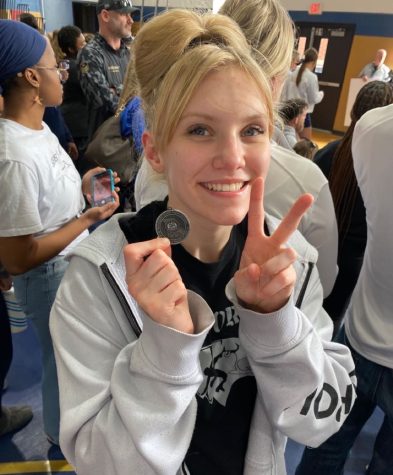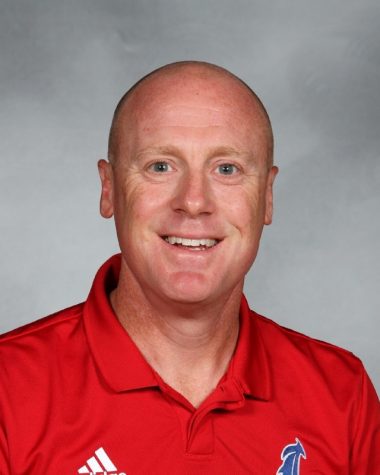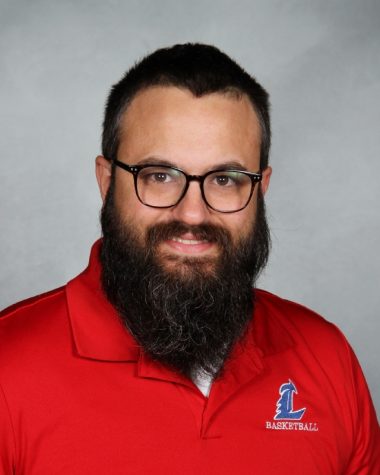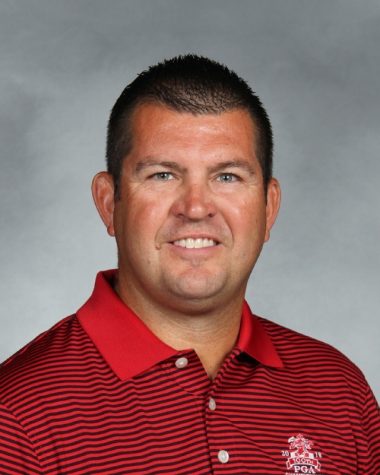An Everyday Struggle
*Trigger warning- discussion of eating disorders*

Maddie Ashlock (sophomore).
Both sophomores Sruthi Ramesh and Maddie Ashlock are picture perfect reflections of involvement in school – they are leaders in Key Club; Ashlock is the 2022 class secretary and a part of HOSA and theatre, while Ramesh is a journalist, Student Council member and the Speech and Debate team captain. Regardless of their successes, however, Ashlock and Ramesh fight to accept what they see in the mirror.
“As most girls do, you want to love yourself,” Ashlock said. “It’s just kind of hard to with society’s ‘normal’ stereotype.”
Middle school and the changes it brought served as a catalyst for their negative body images.
Ashlock has always been smaller than other girls her age, but it didn’t bother her growing up. However, when middle school began, her peers began to took note.
“I was bullied by a group of girls. They gave me names that had to do with being skinny or having to do with eating disorders even though I didn’t have one,” Aschlock said. “Ever since [my body image] hasn’t been the best.”
Ramesh has also felt pressured by society to look a certain way.
“Most people first feel [body image] when they come to an age where they’re aware enough to think about what other people think of them,” Ramesh said.
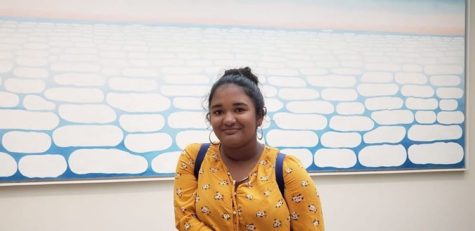
Sruthi Ramesh (sophomore).
Media played a major role in developing Ramesh’s awareness. From the stars shown on kids TV shows to the weight loss surgery commercial playing afterwards, an ideal image for your future body is subconsciously engraved in young minds – even if it’s inaccurate. Thus, an all-consuming obsession with needing to fix your body is slowly born.
Like many teenage girls, Ramesh has linked what she eats with how she looks, creating an unhealthy relationship with food.
“There are days when I just don’t eat because I feel like I don’t deserve it. A lot of that ties into mental health as well,” Ramesh said. “It’s given so much weight over what we think. Food itself is not the problem, it’s our mindset.”
No matter what your size is, insecurity has become a common part of female culture. Women are taught to view their bodies in extremities rather than simply existing without description.
“People are always calling themselves too fat or too skinny or too short or too tall,” Ashlock said. “It’s really sad that we see ourselves that way, but it’s hard to find the resources to change our mindsets.”
Sometimes, this deep-rooted self-hatred threatens to consume every aspect of a life.



